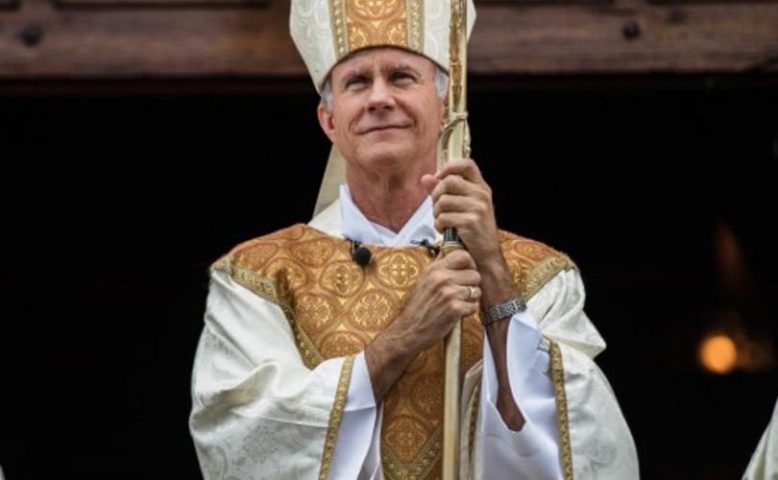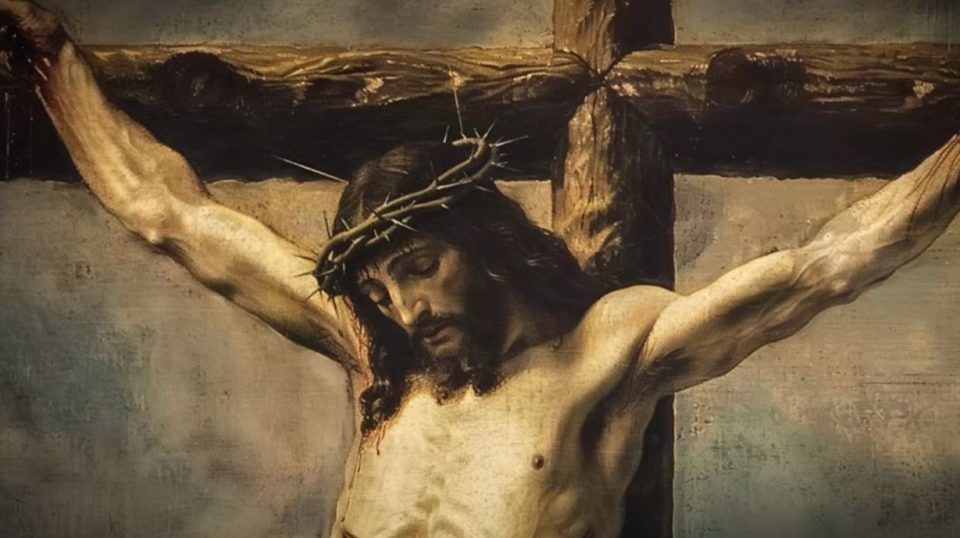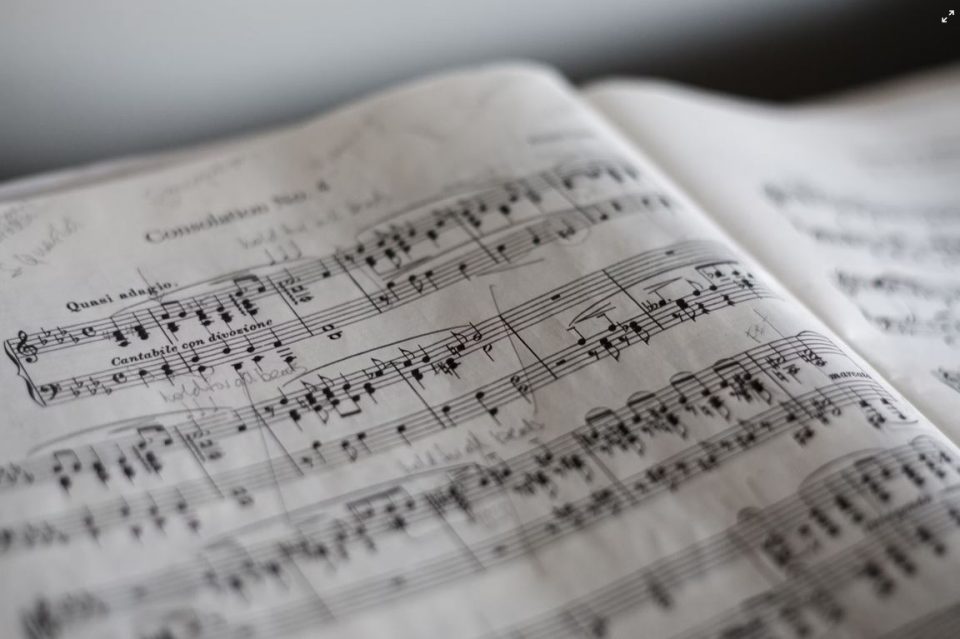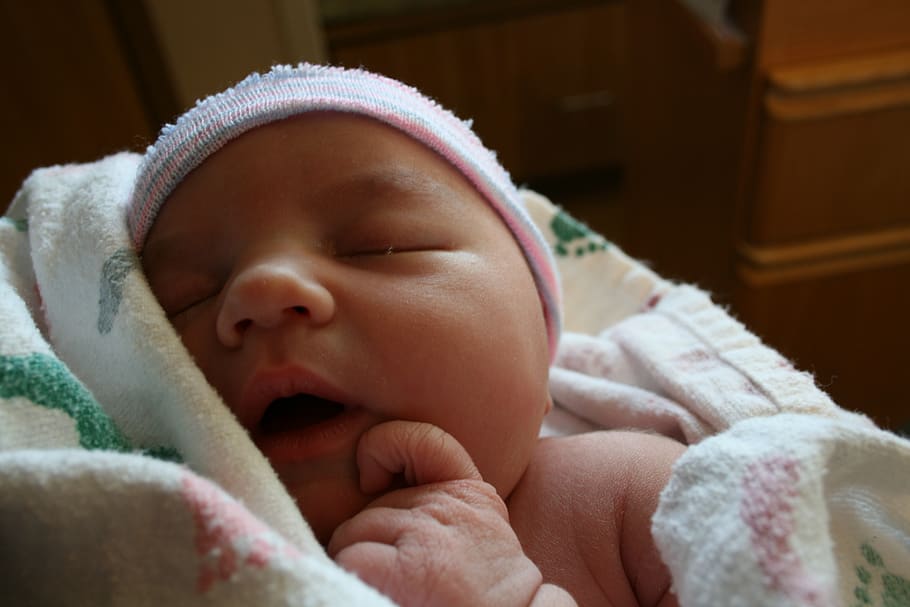Editors Note: Bishop Strickland’s column titled, Guarding The Deposit Of The Faith, appears weekly in The Wanderer.
By Most Rev. Joseph Stricklnad, The Wanderer, March 3, 2020
(Republished with permission of Mr. Joe Matt, The Wanderer)
People are searching for true happiness. St. Augustine, in his Confessions, wrote, “The happy life is this — to rejoice to you, in you, and for you. That is it! And there is no other. But those who think there is another follow after other joys, and not the true one.”
People want to be free. But the only freedom which will truly satisfy is the authentic freedom which comes from God alone; from choosing what is true, and good and noble and beautiful.
Both the desire for happiness and the desire for freedom are a natural and supernatural longing.
We live in an age which suggests that “happiness” can come from various forms of self-idolatry. Sadly, we have failed to teach the truth about the only way to beatitude or happiness, and even the Catholic flock has been swept into the sewer of lies.
We live in an age which espouses a notion of freedom of choice as a power to do whatever one desires without reference to any evaluative or objective norm outside of a self-constructed individualistic compass. This errant view is evident in every behavior that treats the human person as something to be used rather than some- one, a gift to be received. It does not free us, fulfill us, or make us happy.
What We Choose Matters
Authentic Catholic moral teaching offers a unique insight that has enormous potential to engage a culture deluded by such a misguided pursuit of self-fulfillment — but enslaved by making the kinds of choices which lead to emptiness, division, and despair.
It affirms that the act of choosing places the person in a relationship with the object, or the subject, chosen. In other words, what we choose not only changes the world around us, but it changes us. St. Gregory of Nyssa provided an insight concerning our choices in an ancient homily quoted approvingly by John Paul II in his masterful encyclical letter on the Moral Life, Veritatis Splendor, which means in English, The Splendor of Truth and is cited in the section on the Moral Life in the Catechism of the Catholic Church: “All things are subject to change — and to becoming never remain constant — but continually pass from one state to another, for better or for worse. Now human life is always subject to change; it needs to be born ever anew. But here birth does not come about by a foreign intervention, as is the case with bodily beings; it is the result of free choice. Thus, we are, in a certain sense, our own parents, creating ourselves as we will, by our decisions.”
What We Choose Determines Who We Become
In a very real sense, what we choose determines who we become. Choosing what is good changes the one making the choice, empowering him or her to proceed along the pathways of virtue and develop the habitus — or habits — which promote Christian character. Choosing what is evil leads to death. The Catechism of the Catholic Church addresses human choice, action, and freedom in these words: “ The more one does what is good, the freer one becomes. There is no true freedom except in the service of what is good and just. The choice to disobey and do evil is an abuse of freedom and leads to ‘ the slavery of sin’ ( cf. Romans 6: 17)” ( CCC, n. 1733).
St. John Paul’s Veritat i s Splendor ( The Splendor of Truth), was a response to the continuing call of the Second Vatican Council to re- root Catholic moral teaching within the Bible, which is the “ soul of theology” ( Dei Verbum, n. 24). It is a marvelous exposition of Catholic Moral Teaching and needs to read and studied by every Catholic — especially in this current moment in the Church where confusion is abounding.
In its first chapter, it provides an exegesis of the Scriptures based on the Lord’s encounter with the rich young man within which it expounds a moral theology of choice. It was not the man’s possessions that made him choose to say No to the Lord’s invitation. It was his disordered relationship to them that impeded his freedom. They possessed him.
He went away sad, not happy, because he made the wrong choice. From this encounter the letter develops its teaching on choice and authentic human freedom, explaining the proper development and formation of conscience in relationship to objective truth. It issues a strong reaffirmation of the Natural Moral Law.
Two years after The Splendor of Truth, John Paul released another encyclical letter entitled Evangelium Vitae, The Gospel of Life, which continued his work of laying a firm foundation for a proper understanding of choice and the Moral Life. In that letter he responded to the myriad of threats against the dignity of human life caused by the re- definition of the word freedom with a prophetic urgency.
He warned of what he called a “ counterfeit notion of freedom.” He said that this counterfeit is the root cause of what he labeled the culture of death.
Under that phrase he coalesced all the current social evils; from abortion ( which is always and everywhere intrinsically evil); to modern slaveries ( including pornography and drug addiction); to disdain for the poor and a cheapening of all life as well as the foreboding momentum toward a misguided use of new medical technologies; to active and passive euthanasia and the return of eugenics.
The Catholic Catechism
In considering the moral life and human choice we should note the clear moral character of the teaching compiled within the Catechism of the Catholic Church released on the thirtieth anniversary of the opening of the Second Vatican Council, October 11, 1992. Part Three of the Catechism, a section devoted specifically to a discussion of moral theology is entitled Life in Christ.
The section treats the vocation of man to beatitude or happiness. It articulates a clear moral theology of choice by considering the morality of human acts, the role of the passions, the proper formation of the conscience and the cultivation of the virtues accompanied by the rejection of sin.
In its explanation of the morality of human acts, the Catechism offers a sobering insight concerning a wrong exercise of freedom: “ Mortal sin is a radical possibility of human freedom, as is love itself.” It properly insists that authentic Human Freedom cannot be realized in decisions made against God and against what is good because human freedom is “ patterned on God’s freedom”: “ Patterned on God’s freedom, man’s freedom is not negated by his obedience to the divine law; indeed, only through this obedience does it abide in the truth and conform to human dignity. This is clearly stated by the Council: ‘ Human dignity requires man to act through conscious and free choice, as motivated and prompted personally from within, and not through blind internal impulse or merely external pressure. Man achieves such dignity when he frees himself from all subservience to his feelings, and in a free choice of the good, pursues his own end by effectively and assiduously marshaling the appropriate means’” ( VS, n. 42).
(Part 2 Next Week)
Source: https://thewandererpress.com/catholic/news/our-catholic-faith/bishop-strickland-choosing-happiness-and-authentic-freedom-part-1/







